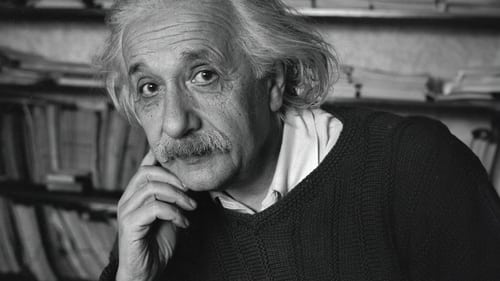
Self (archive footage)
ナチス政権下のドイツから逃れたアインシュタインは、その後どうなったのか? 記録映像や他ならぬ本人の言葉を交えて、苦悩に満ちた天才の知られざる素顔に迫るドキュメンタリードラマ。

a cat is racist on discord and learns its bad

Editor
a cat is racist on discord and learns its bad

Self - Politician (archive footage)
In 1945, two young American soldiers, brothers Budd and Stuart Schulberg, are commissioned to collect filmed and recorded evidence of the horrors committed by the infamous Third Reich in order to prove Nazi war crimes during the Nuremberg trials (1945-46). The story of the making of Nuremberg: Its Lesson for Today, a paramount historic documentary, released in 1948.
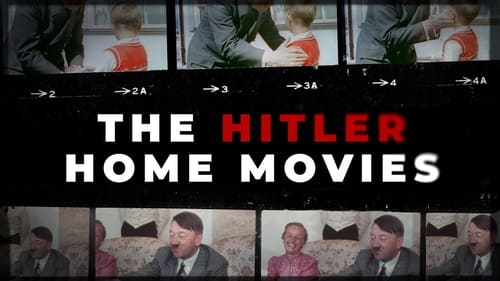
Secluded deep in the Bavarian Alps, Hitler, his family, and closest allies hid away- issuing orders for armies across Europe while they relaxed, dined, and enjoyed an otherworldly peace.

Self - Politician (archive footage)
During the Spanish Civil War (1936-1939) and the Second World War (1939-1945), around three thousand people managed to elude their pursuers, and probably also avoided being killed, thanks to the heroic and very efficient efforts of the Ponzán Team, a brave group of people — mountain guides, forgers, safe house keepers and many others —, led by Francisco Ponzán Vidal, who managed to save their lives, both on one side and the other of the border between Spain and France.
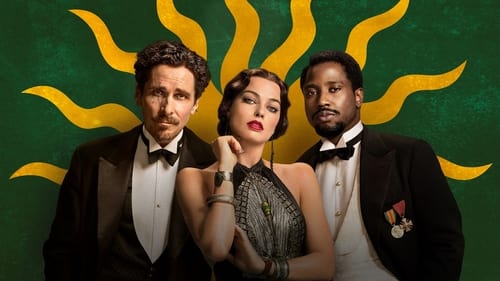
Self (Archival Footage)
世界の歴史を変えた衝撃的な陰謀の裏側を描いた、ありえないけど“ほぼ実話”。 1930年代ニューヨーク、かつてアムステルダムで出会った3人の友人たちが ある殺人事件の容疑者となり、思いがけず全世界に渦巻く 巨大な陰謀へと巻き込まれていくことに―
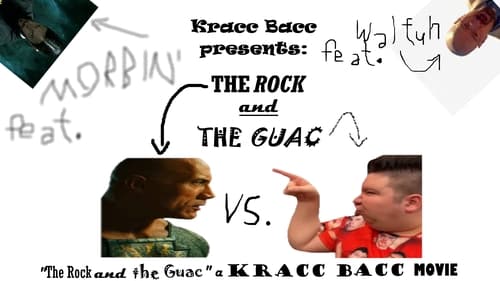
Writers' Production
Tired of the verbal abuse of fans, Nikocado decides to go to the world of Minecraft and take revenge on The Rock, what follows will shock you, Waltuh.
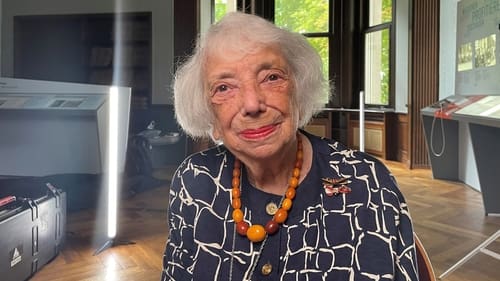
Self (archive footage)
It was arguably the deadliest conference in human history. The topic: plans to murder 11 million Jews in Europe. The participants were not psychopaths, but educated men from the SS, police, administration and ministries. The invitation to the meeting at Wannsee came from Reinhard Heydrich, head of the Reich Security Main Office. The Wehrmacht's campaigns of conquest in Eastern Europe marked the beginning of the systematic murder of Jews in Poland and the Soviet Union. In mid-September 1941, Hitler made the decision to deport all Jews from Germany to the East. Although there had been transports before, Hitler's order represented a further escalation in the murderous decision-making process. Persecution and discrimination had been part of everyday life since 1933. But as a result, the living conditions for the Jews in the Third Reich became even more difficult, among them the Berlin Jew Margot Friedländer, born in 1921, and the Chotzen family.
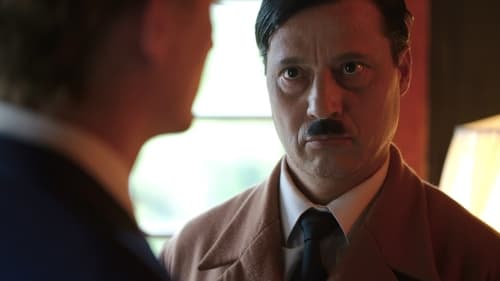
Self (archive footage)
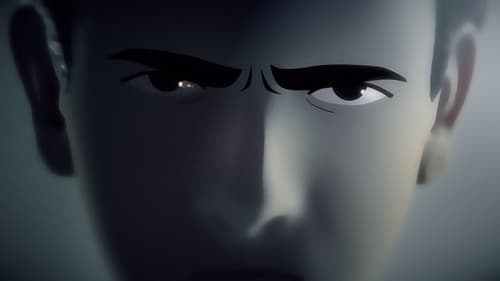
Himself (Archival footage and pictures)
Camp Confidential: America's Secret Nazis, is a documentary short featuring animation that focuses on the story of a top secret POW camp that was classified for over 5 decades. In the midst of WWII, a group of young Jewish refugees are assigned to guard a top secret POW camp near Washington D.C. The Jewish soldiers soon discover that their prisoners are no other than Hitler's top scientists - What starts out as an intelligence mission to gather information from the Nazis, soon gets a shocking twist when the Jewish soldiers are tasked with a very different mission altogether. A mission that would question their moral values - exposing a dark secret from America's past.
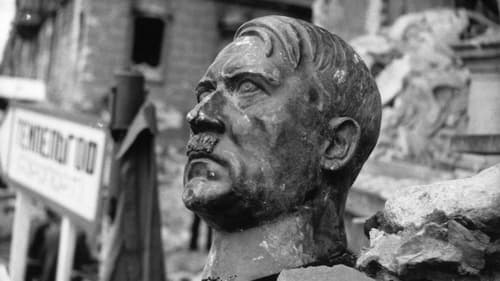
Self (archive footage)
This provocative consideration of the lasting influence and draw of Hitler provides insight into the resurgence of white supremacy, antisemitism, and the weaponization of history.

Himself (archive footage)

Self - Politician (archive footage)
Germany, 1929. Helmut Machemer and Erna Schwalbe fall madly in love and marry in 1932. Everything indicates that a bright future awaits them; but then, in 1933, Adolf Hitler and the Nazi Party rise to power and their lives are suddenly put in danger because of Erna's Jewish ancestry.

Self - Politician (archive footage)
For more than a decade, Reichsmarschall Hermann Göring, Adolf Hitler's right-hand man during the infamous Third Reich, assembled a collection of thousands of works of art that were meticulously catalogued. Why did he steal entire collections, mainly those belonging to Jewish families, ultimately victims of the Shoah? Was it to satisfy his aesthetic ambitions and his insatiable personal greed or was he acting in the common interest of the Nazi rulers?
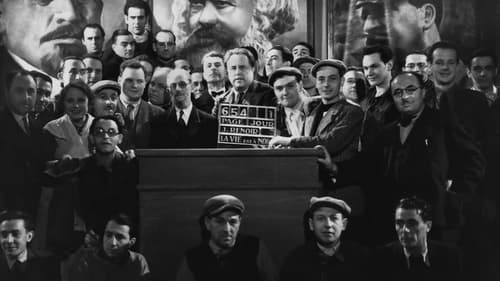
Self (archive footage)

Self (archive footage)
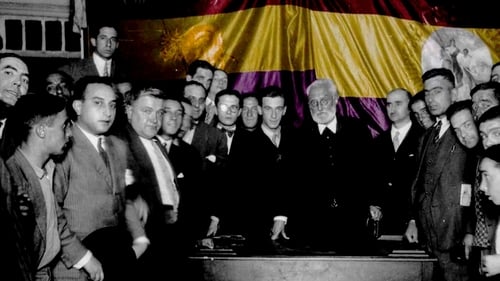
Self - Politician (archive footage)
Spain, April 14, 1931. The Second Republic is born. From the beginning, the writer Miguel de Unamuno is considered one of the ethical pillars of the new regime. Five years later, on December 31, 1936, a few months after the outbreak of the Spanish Civil War (1936-39), Unamuno dies at his home in Salamanca, capital of the rebel side, led by General Francisco Franco, and main center of dissemination of its propaganda apparatus.

Self (archive footage) (uncredited)
Countless people around the world know the pictures from Leni Riefenstahl's films, even if they have not seen them in their entirety. The work of the German director has burned itself into the collective memory. Even decades after the end of the Nazi era, she showed no remorse and presented herself as an apolitical, naive follower of the Nazi criminal regime. Her artistic service for the cinema was always recognized. But book author Nina Gladitz shows after decades of research that Hitler's favorite filmmaker was not only a follower, but also a perpetrator during the Third Reich, who instrumentalized other filmmakers such as the brilliant cinematographer Willy Zielke in order to gain fame for herself.
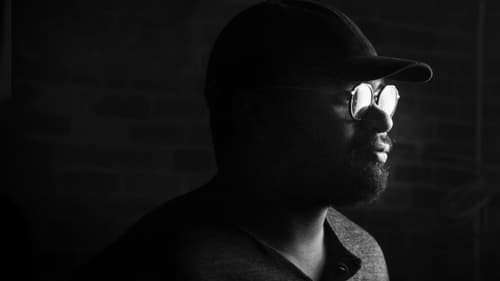
Self (archive footage)
In a collection of intimate interviews with some of America's most provocative black conservative thinkers, Uncle Tom takes a unique look at being black in America. Featuring media personalities, ministers, civil rights activists, veterans, and a self-employed plumber, the film explores their personal journeys of navigating the world as one of America's most misunderstood political and cultural groups: The American Black Conservative. In this eye-opening film from Director Justin Malone and Executive Producer Larry Elder, Uncle Tom examines self-empowerment, individualism and rejecting the victim narrative. Uncle Tom shows us a different perspective of American History from this often ignored and ridiculed group.

Self (archive footage)
This is the story of an incredible rise to power, the most comprehensive documentary on Hermann Goering ever made. He was a man of many faces: vain, ambitious, more brutal than any other of Hitler's minions, yet the most popular Nazi official of all, at times even more popular than Hitler himself. He embodied the jovial side of the Third Reich. Yet the same man who organised dissolute bacchanals also founded the Gestapo, set up the first concentration camps, and had his own comrades murdered in the purge of 1934. These unique personal records form the largest and most important single film find from the Nazi era in past years.

Self (archive footage)
Antisemitism in the US and Europe is spreading and is seemingly unstoppable. Andrew Goldberg examines its rise traveling through four countries to follow antisemitism and their victims, along with experts, politicians and locals.
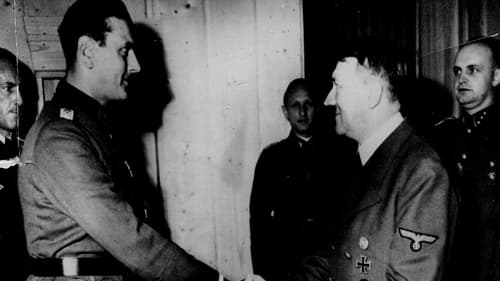
Self - Politician (archive footage)
Waffen-SS officer Otto Skorzeny (1908-75) became famous for his participation in daring military actions during World War II. In 1947 he was judged and imprisoned, but he escaped less than a year later and found a safe haven in Spain, ruled with an iron hand by General Francisco Franco. What did he do during the many years he spent there?

Self - Politician (archive footage)
Tucson, Arizona, September 1996. At the request of his son Martin, George Goldsmith tells him of his past in Nazi Germany as a member of a family of Jewish musicians and the strange history of the Jüdischer Kulturbund, a Jewish organization sponsored by Reichsminister Joseph Goebbels.

Self (archive footage)
This richly illustrated historical documentary investigates the mechanism of nationalist feelings that radicalise. It shows how fascism was on the rise even a decade before the founding of the NSB, due to a number of anti-democratic initiatives led by a millionaire with a predilection for one-legged women, a market vendor, a cleric, and an artist. Historians, writers and collectors of fascist curios reveal how an initially marginal and fragmented movement grew into a radical populist party.
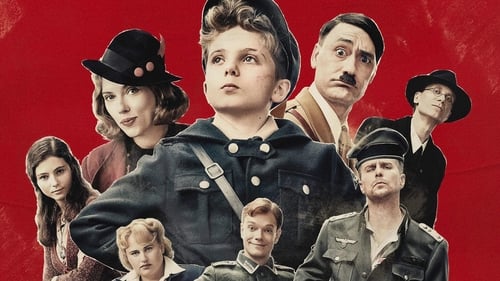
Self (archive footage) (uncredited)
戦時下のドイツで暮らす10歳の心優しい少年の視点を通し、困難な中で生きる人々の希望と喜びを描き出す。タイカ・ワイティティ監督、スカーレット・ヨハンソンら実力派キャストによる感動のヒューマン・ドラマ。
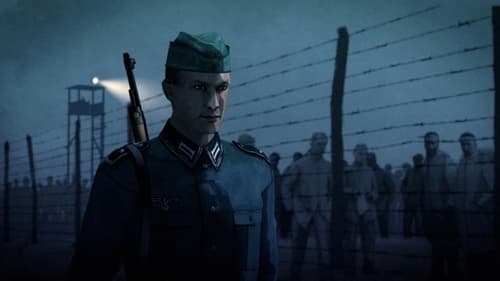
Self - Politician (archive footage)
September 1st, 1939. Nazi Germany invades Poland. The campaign is fast, cruel and ruthless. In these circumstances, how is it that ordinary German soldiers suddenly became vicious killers, terrorizing the local population? Did everyone turn into something worse than wild animals? The true story of the first World War II offensive that marks in the history of infamy the beginning of a carnage and a historical tragedy.
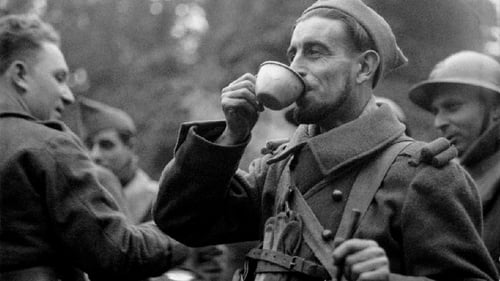
Self - Politician (archive footage)
September 3rd, 1939. Britain and France declare war on Nazi Germany, only two days after the Wehrmacht invades Poland. This day, the sad date when the fate of the world changed forever, the Phoney War began: eight months of uncertainty, preparations, evacuations and skirmishes.
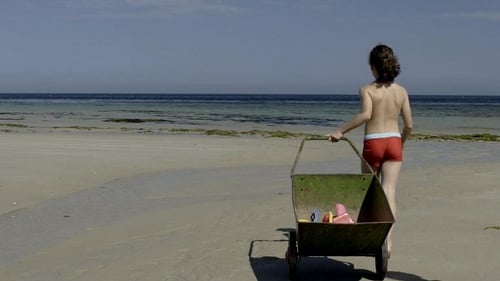
Self (archive footage)
An account of the last two centuries of the Anthropocene, the Age of Man. How human beings have progressed so much in such a short time through war and the selfish interests of a few, belligerent politicians and captains of industry, damaging the welfare of the majority of mankind, impoverishing the weakest, greedily devouring the limited resources of the Earth.
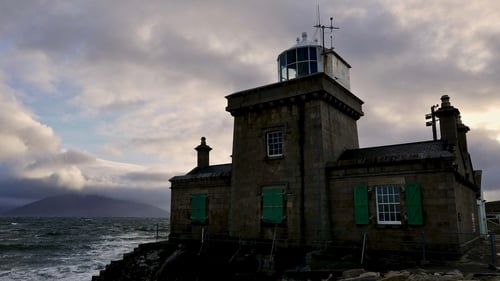
Himself (archive footage)
Ireland, June 1944. The crucial decision about the right time to start Operation Overlord on D-Day comes to depend on the readings taken by Maureen Flavin, a young girl who works at a post office, used as a weather station, in Blacksod, in County Mayo, the westernmost promontory of Europe, far from the many lands devastated by the iron storms of World War II.
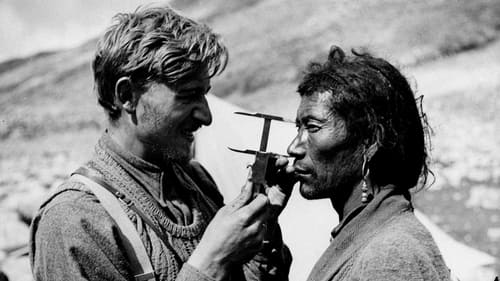
Self - Politician (archive footage)
In 1935, German scientists dug for bones; in 1943, they murdered to get them. How the German scientific community supported Nazism, distorted history to legitimize a hideous system and was an accomplice to its unspeakable crimes. The story of the Ahnenerbe, a sinister organization created to rewrite the obscure origins of a nation.

Self (archive footage)
From the British Empire, to the French Revolution, to the Spanish Inquisition, the conquest of the Aztecs, the Protestant Reformation, the Rothschild banking dynasty, the American Revolutionary War and beyond, Apotheosis of Evil will take you, the viewer, on the most exhaustive, awe-inspiring and unbelievable journey through the history of Europe, through its many ups and downs, arriving at the present day. The full length documentary epic covering European history in its entirety, exploring previously unexplored avenues of history and dispelling many myths along the way. It's time to rethink everything you thought you knew.

Self (archive footage) (uncredited)
How could Hitler and Stalin, sworn ideological enemies, come to a secret pact in 1939? The captivating and detailed story of the diplomatic fiasco that led to the signing of the Nazi-Soviet pact and its devastating consequences.
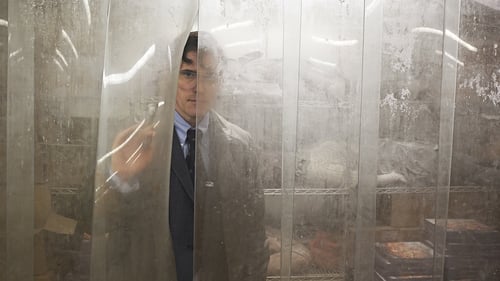
Self (archive footage) (uncredited)
建築家を目指す潔癖症の男が、ある日、車が故障して困っている女性を助けようとするが、衝動的に殺してしまう。これをきっかけに、まるで理想の家の建築を追求するかのように、その後12年にも渡って殺人を重ねていく。

Self (archive footage)
An analysis of the causes, social, political, and economic that caused the rise of Hugo Chávez as president of Venezuela; his abuse of power and the response of civil society, including the student movement; his political fall as well as the secrecy that surrounded his illness and the succession of Nicolás Maduro.

Adolf Hitler (archive footage)

Self (archive footage)
On May 2, 1945, Soviets take control over the Fuhrerbunker. On May 5th, they find bodies of Hitler and Eva Braun buried in the garden near the bunker. Investigation of Hitler's death was kept secret until now.

Self (archive footage)
Franco on Trial is the new film by Dietmar Post and Lucía Palacios. After the success of Franco's Settlers, their first encounter with Franco's dictatorship, they are now setting their sights on one of the darkest chapters of European history: the presumed organized extermination that took place during the coup, the war, and the subsequent dictatorship led by Franco, as well as Argentina's current effort, by invoking the principle of universal jurisdiction, to prosecute Francoists accused of committing crimes against humanity. The film is also a sore reminder of an issue that still stands today: the clear-cut accountability held by Germany, Italy, and Portugal. The film accomplishes to give both sides a voice - those against whom the killing has been directed; and the side of the perpetrators.
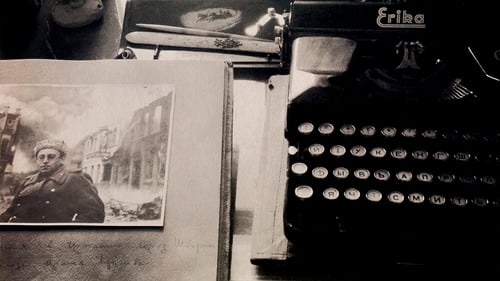
Self - Politician (archive footage)
The convoluted and moving story of Russian writer Vassili Grossman (1905-64) and his novel Life and Fate (1980), a literary masterpiece, a monumental and epic account of life under Stalin's regime of terror, a defiant cry that the KGB tried to suffocate.
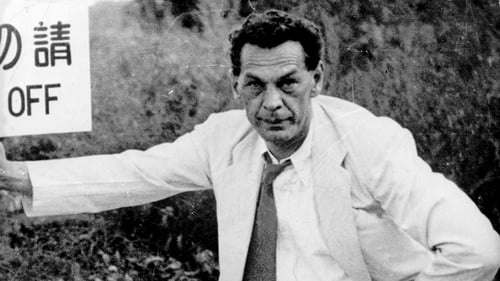
Self - Politician (archive footage)
An account of the troubled life of Richard Sorge (1895-1944), a Soviet spy of German origin who played a decisive role in the outcome of World War II.
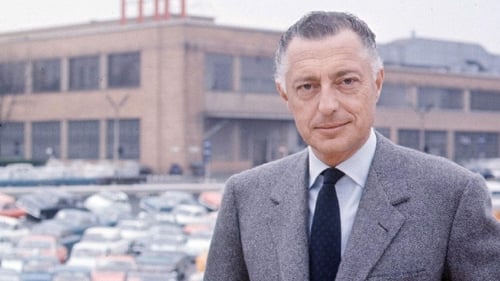
Self (archive footage)
Documentary about the life of Giovanni "Gianni" Agnelli, an influential Italian industrialist and principal shareholder of Fiat.
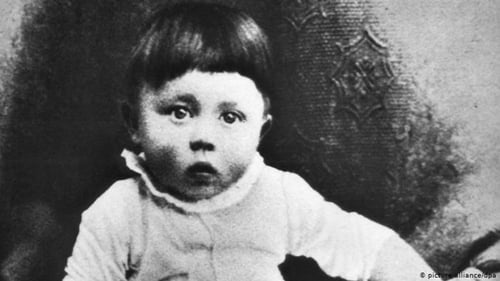
Self (archive footage)
Hitler's biography told like never before. Besides brief historical localizations by a narrator, only contemporaries and Hitler himself speak: no interviews, no reenactment, no illustrative graphics and no technical gadgets. The testimonies from diaries, letters, speeches and autobiographies are assembled with new, often unpublished archive material. Hitler's life and work are thus reflected in a unique way in interaction with the image of the society in the years 1889 to 1945.
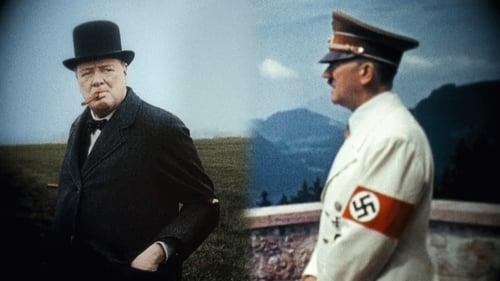
Self - Politician (archive footage)
Winston Churchill, one of the most revered men of the twentieth century. Adolf Hitler, one of the most hated leaders in contemporary history. Between 1940 and 1945, these two enormously contradictory personalities faced each other in both politics and war. A clash of giants whose story begins in the trenches of the World War I and ends with the debacle of the World War II.

Self - Politician (archive footage)
The intricate history of UFA, a film production company founded in 1917 that has survived the Weimar Republic, the Nazi regime, the Adenauer era and the many and tumultuous events of contemporary Germany, and has always been the epicenter of the German film industry.
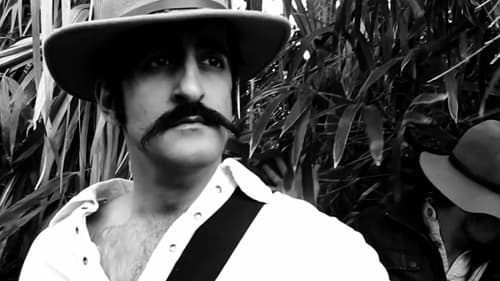
Himself (archive footage)
Brian, a simple shovel salesman, thinks Alice is the girl of his dreams, but she's the stuff of nightmares: a shape-shifting alien bent on destroying the human race through sheer reproductive power. Brian soon gives birth to a half-human infant, the first of an alien master race. With the help of a psychotic private detective and an archaeologist with a mysterious past, Brian races to save the world from certain destruction. But as the bond between mother and child grows, will Brian be capable of making the ultimate sacrifice to save his species?
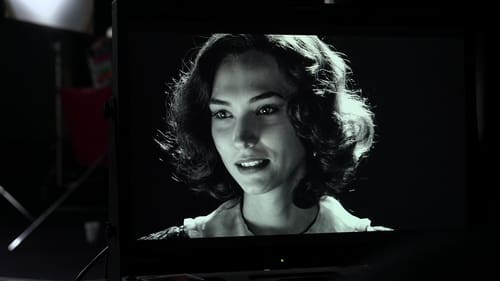
Himself - Politician (archive footage)
The story of Italian cinema under Fascism, a sophisticated film industry built around the founding of the Cinecittà studios and the successful birth of a domestic star system, populated by very peculiar artists among whom stood out several beautiful, magnetic, special actresses; a dark story of war, drugs, sex, censorship and tragedy.

Self (archive footage) (uncredited)
The story of Django Reinhardt, famous guitarist and composer, and his flight from German-occupied Paris in 1943.
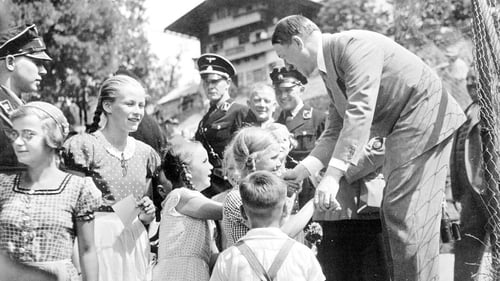
Self (archive footage)
The Obersalzberg retreat was the summer residence and retreat of Adolf Hitler, Eva Braun and his closest confidants in the Nazi regime. The public are mainly familiar with fi lm footage and photographs from the alleged Nazi idyll. For the first time, eye witnesses are willing to talk about their experiences in Obersalzberg.
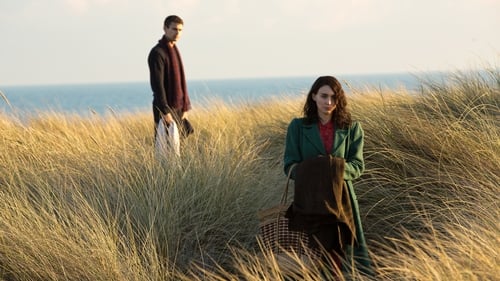
Self (archive footage)
とある精神科病院の建物が老朽化が進んだため、患者たちは新たな病院へ転院することに。かつて自らの赤ん坊を殺した罪に問われ、この病院に40年間も収容されていた老女ローズは、ただひとり移転に頑強に反対し、院長らを困らせていた。そんな中、ローズを問診することになった精神科医のグリーンは、彼女が1冊の聖書を大切に持ち歩いていることを知る。そこには、彼女の知られざる過去の秘密があれこれ書き記されていた。
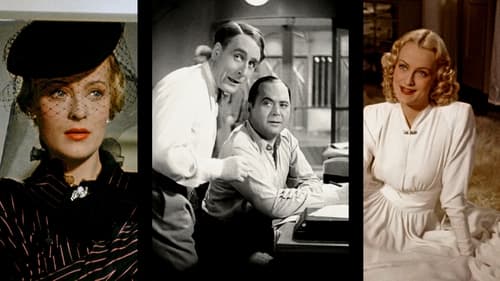
Self - Politician (archive footage)
Film journalist and critic Rüdiger Suchsland examines German cinema from 1933, when the Nazis came into power, until 1945, when the Third Reich collapsed. (A sequel to From Caligari to Hitler, 2015.)
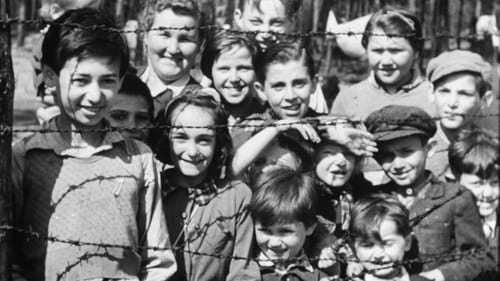
Self (archive footage)
On the 29th September 1945, the incomplete rough cut of a brilliant documentary about concentration camps was viewed at the MOI in London. For five months, Sidney Bernstein had led a small team – which included Stewart McAllister, Richard Crossman and Alfred Hitchcock – to complete the film from hours of shocking footage. Unfortunately, this ambitious Allied project to create a feature-length visual report that would damn the Nazi regime and shame the German people into acceptance of Allied occupation had missed its moment. Even in its incomplete form (available since 1984) the film was immensely powerful, generating an awed hush among audiences. But now, complete to six reels, this faithfully restored and definitive version produced by IWM, is being compared with Alain Resnais’ Night and Fog (1955).
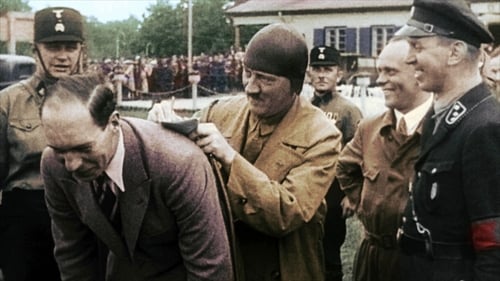
Self (archive footage)
How Germany was when its people entered the nightmare of World War II? Despair and fear lead a hungry population to follow the chilling call of just one man to world domination. A real-life horror story, an ominous tale of violence and deception, which takes place from 1919 to 1934. (Entirely made up of restored, colorized archival footage.)

Self
Documentary about the attempts to assassinate Franco
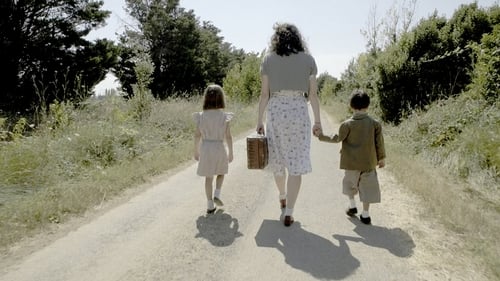
Self - Politician (archive footage)
A captivating and personal detective story that uncovers the truth behind the childhood of Michaël Prazan's father, who escaped from Nazi-occupied France in 1942 thanks to the efforts of a female smuggler with mysterious motivations.

Self (archive footage)
During the worst days of World War II, the British government asks the mathematician Alan Turing to unravel the mysteries of the German Enigma encryption machine, an impossible task to accomplish without the invaluable information that Hans-Thilo Schmidt, a disenchanted but greedy German citizen, had been handing over to the French secret services since 1931.

Self (archive footage)
The story of Hitler’s final hours told by people who were there. This special features exclusive forgotten interviews, believed lost for 65 years, with members of Hitler’s inner circle who were trapped with him in his bunker as the Russians fought to take Berlin. These unique interviews from figures such as the leader of the Hitler Youth Artur Axmann and Hitler’s secretary Traudl Junge, have never before been seen outside Germany. Using rarely seen archive footage and dramatic reconstruction, this special tells the story of Adolf Hitler’s final days in his Berlin bunker.

Self - Politician (archive footage)
England, 1940, during World War II. An MI5 officer, codenamed Jack King, infiltrates a network of conspirators, a British fifth column sympathetic to Nazi Germany, in order to control the organization and destroy it in the event of a German invasion. But who was he? A single person or several?
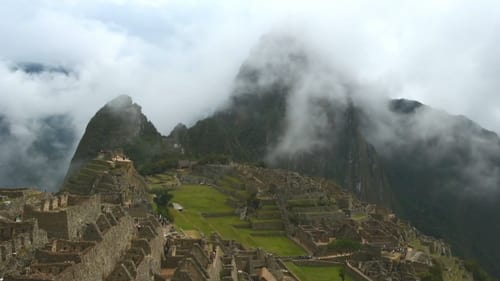
Self (archive footage)
Despite the advent of science, literature, technology, philosophy, religion, and so on -- none of these has assuaged humankind from killing one another, the animals, and nature. UNITY is a film about why we can't seem to get along, even after thousands and thousands of years.

Self (archive footage)
On the 29th of August 1949, the USSR set off their first atomic bomb, just four years after the Americans. The speed with which they achieved this surprised the world. What nobody knew was that it was the result of espionage. At the centre of the operation was a very unusual female spy, Elizabeth Zaroubin, in a story worthy of the best spy novels ever written.
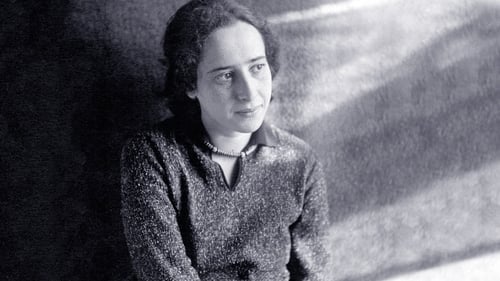
Self - Politician (archive footage)
The life and work of German political philosopher of Jewish descent Hannah Arendt (1906-75), who caused a stir when she coined a subversive concept, the banality of evil, in her 1963 book on the trial of Nazi war criminal Adolph Eichmann (1906-62), held in Israel in 1961, which she covered for the New Yorker magazine.

Self (archive footage)
How, in 1945, after the end of World War II and the fall of the Nazi regime, the defeated were atrociously mistreated, especially those ethnic Germans who had lived peacefully for centuries in Germany's neighboring countries, such as Czechoslovakia and Poland. A heartbreaking story of revenge against innocent civilians, the story of acts as cruel as the Nazi occupation during the war years.

Self (archive footage)
In the last 250 years, free-market ideology has played a central role in the development of the logic and rhetoric that have influenced the daily life of populations throughout the world. It was cornered for a few decades during the twentieth century in favor of a social economy for the public interest, and then returned to the limelight in the last thirty years of the century to dominate the logics that drive world economies, doing the favor of the elites at the expense of 99%. Through the testimony of six people informed about the facts, Laissez-faire offers a historical and ideological perspective through which to identify the fundamental problems of the economic mechanism on which societies are based.

zo záznamu

Self - Führer und Reichskanzler (archive footage)
The real reasons and orchestrators behind Hitler, to an incredible theory of the JFK assassination, all the way to 9/11 and the current age of the terrorist. Taken from an historical perspective starting around World War 1 leading to present day.
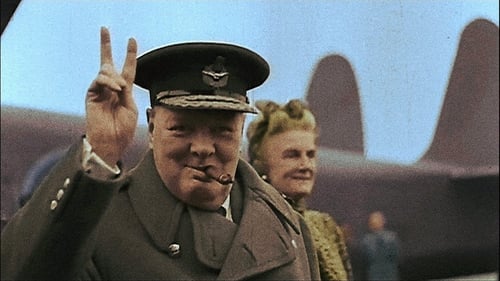
Self (archive footage)
A new look at the public and private life of one of the most important statesmen in the history of Europe: Winston Churchill (1874-1965), soldier, politician, writer, painter, leader of his country in the darkest hours, winner of the Nobel Prize in Literature, a myth, a giant of the 20th century.

Himself (archive footage)
The documentary "Reza Shah" begins with the rise of Reza Khan to power and looks at his reign from beginning to the end.

Self (archive footage)

Self (archive footage)
A documentary about the political entanglement between the Wagner Family and the leadership of the Third Reich.
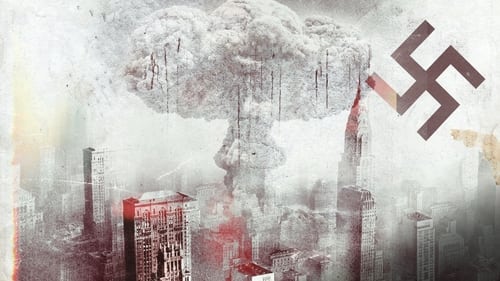
Self (archive footage)
Adolf Hitler's Nazi megalomania knew no limits. The most daring of his plans World War II involved German fighter planes crashing into Manhattan's skyscrapers as living bombs, like the Japanese kamikazes. Hitler understood the huge symbolic power of Manhattan's skyscrapers. He believed suicide bombing would have a devastating psychological impact on the American people and the U.S. war effort.

Self (archive footage)
Oliver Stone charts the history of the United States from the Second World War to the present.

Self (archive footage)
Jesse Owens details Jesse's early career; describes Adolf Hitler s outsized ambitions for the 1936 Olympics; explores the movement in Western democracies to boycott the event; and explains the pressures on Owens to attend. The film also explores why, despite his success in Germany, Owens struggled to find a place for himself in a United States that was still wrestling with its own deeply entrenched racism.

Adolf Hitler

Self (archive footage)
By early in the twentieth century, Nuremberg was regarded as the most anti-Semitic city in Europe. By 1929, Hitler had decided to make Nuremberg the "City of the Party Rallies" and a symbol representing the greatness of the German Empire. Even today, it is possible to see signs in Nuremberg of the megalomaniac proportions that the system was to assume.
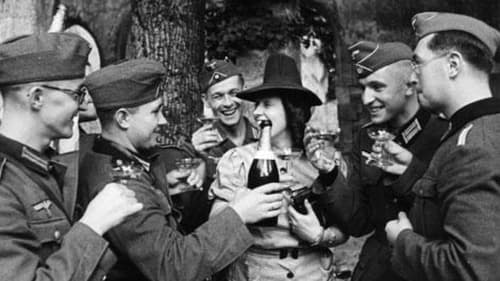
Self (archive footage) (uncredited)

Self (archive footage)
Based on the story of Americas enigmatic career of one of the revered architects of the modern world - icon, screen star, and two-term president, Ronald Reagan.

Self (archive footage) (uncredited)
Rayne fights against the Nazis in Europe during World War II, encountering Ekart Brand, a Nazi leader whose target is to inject Adolf Hitler with Rayne's blood in an attempt to transform him into a dhampir and attain immortality.
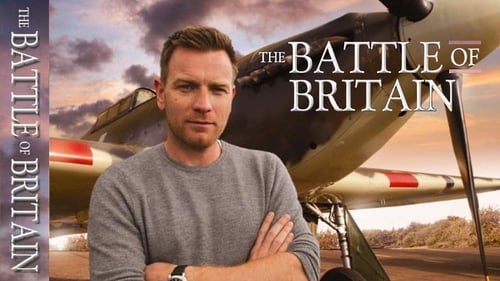
Self (archive footage)
Seventy years on, brothers Colin and Ewan McGregor take viewers through the key moments of the Battle of Britain, when 'the few' of the RAF faced the might of the Nazi Luftwaffe. As they fly historic planes, meet the veterans, explore the tactics and technology, Colin and Ewan discover the importance of the Battle and the surviving legacy of the 1940's campaign for the modern RAF.
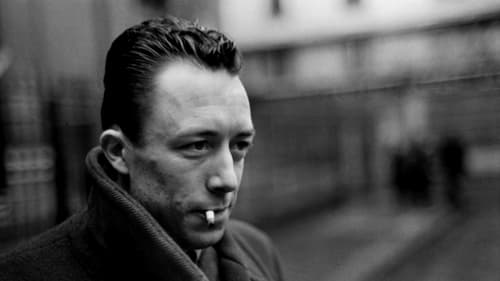
Self (archive footage)
An account of the brief life of the writer Albert Camus (1913-1960), a Frenchman born in Algeria: his Spanish origin on the isle of Menorca, his childhood in Algiers, his literary career and his constant struggle against the pomposity of French bourgeois intellectuals, his communist commitment, his love for Spain and his opposition to the independence of Algeria, since it would cause the loss of his true home, his definitive estrangement.

Self (archive footage)
Fall Of The Republic documents how an offshore corporate cartel is bankrupting the US economy by design. Leaders are now declaring that world government has arrived and that the dollar will be replaced by a new global currency.

Self (archive footage)
The Spanish Civil War (1936-1939) caused a great impression on the lives of most of the American artists of that era, so many movies were made in Hollywood about it. The final defeat of the Spanish Republic left an open wound in the hearts of those who sympathized with its cause. The eventful life of screenwriter Alvah Bessie (1904-1985), one of the Hollywood Ten, serves to analyze this sadness, the tragedy of Spain and its consequences.

Self (archive footage)
About the researcher Wilhelm Reich, who wanted to prove and compare life-energies in global experiments and searched for basic principles of life. His transformation from the model student Freud to the questionable UFO researcher is also addressed.

Self (archive footage)

Self (archive footage)
A double portrait of two dictators who were thousands of miles apart but were constantly fixated on each other.

Self (archive footage)
Dark Fellowships attempts to uncover the truth about a bizarre occult group, whose members allegedly included many leaders of the Nazi Party, even Hitler himself.

Self (archive footage)
Fifty years ago, at the height of the Cold War, the USSR launched Sputnik, the first satellite to orbit the earth, bringing America to its knees in awe - then fear. Initially thrilling as a marvel of science, Sputnik was soon viewed by America a weapon of mass destruction.

Self (archive footage)

Self (archive footage)
Film-makers and academics discuss the use of mythology in Star Wars and the impact of the films on society

Self (archive footage)
Stealing Klimt recounts the struggle by 90-year-old Maria Altmann to recover five Gustav Klimt paintings stolen from her family by the Nazis in Vienna. From the end of the War up until last year, these paintings hung in the Austrian National Gallery. The film covers Maria's early life in glittering fin-de-siècle Vienna, her dramatic escape from Nazi terror and her courageous fight to recover the five Klimt's against all the odds. Maria's fight to reclaim the paintings eventually took her to the United States Supreme Court and pitted her not just against Austria but also against the US Government which asked the Supreme Court to reject her case. After Maria finally emerged victorious in 2006, one of the paintings - the "Golden Portrait" of Maria's aunt, Adele Bloch Bauer - was sold to cosmetics tycoon Ronald Lauder for $135m, becoming the world's most expensive painting ever sold. The other four paintings were recently auctioned at Christie's for record prices.
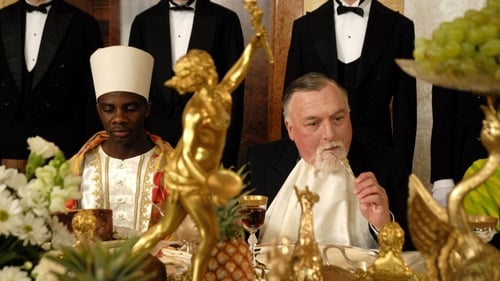
Self (archive footage)
Prague, Czechoslovakia, during the inter-war period. Jan Dítě, a young and clever waiter who wants to become a millionaire, comes to the conclusion that to achieve his ambitious goal he must be diligent, listen and observe as much as he can, be always discreet and use what he learns to his own advantage; but the turbulent tides of history will continually stand in his way.
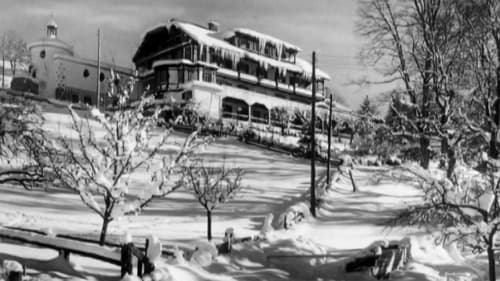
Adolf Hitler spent over 1,000 days on the Obersalzberg, his mountain holiday refuge near Berchtesgaden. It was there he made his decisions about war and destruction. The producers, through special permits, explore the abandoned concrete tunnels in search of the relics of history of Hitler’s mountain and to tell almost forgotten tales of the people who lived there, high up in the shadow of power.

Self (archive footage)
After the World War I, Mussolini's perspective on life is severely altered; once a willful socialist reformer, now obsessed with the idea of power, he founds the National Fascist Party in 1921 and assumes political power in 1922, becoming the Duce, dictator of Italy. His success encourages Hitler to take power in Germany in 1933, opening the dark road to World War II. (Originally released as a two-part miniseries. Includes colorized archival footage.)
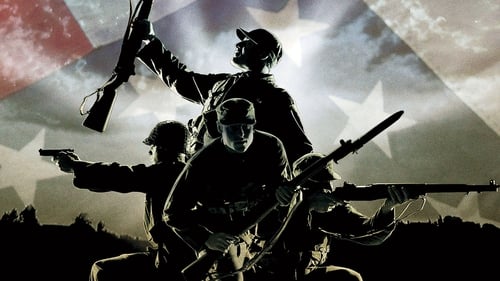
Self (archive footage)
As World War II rages, the elite Sixth Ranger Battalion is given a mission of heroic proportions: push 30 miles behind enemy lines and liberate over 500 American prisoners of war.
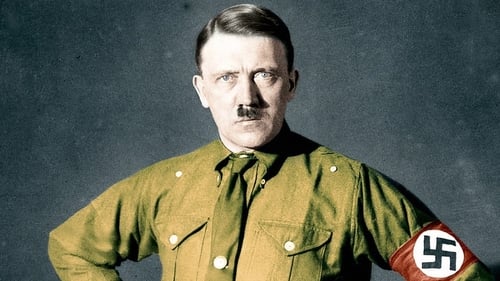
Self (archive footage)
Documentary using only original colour footage charts the 12 years from Adolf Hitler's rise to power to the fall of Berlin in 1945. Complemented by eyewitness material, tracks the dramatic transformation of Germany into a Nazi state, looks into Hitler's relationship with his lover Eva Braun and replicates pivotal events, including Nazi rallies, the invasion of Poland, Hitler's meeting with Lloyd George, the horrors of Buchenwald concentration camp, Warsaw's Jewish Ghetto, the Battle of Britain and the fall of Berlin.

Self (archive footage)
A documentary about the life of Errol Flynn, with recollections from friends and family.

Self (archive footage)
Adolf Hitler the fighting man is the subject of this engrossing feature, chronicling the future dictator’s combat experience as a foot soldier in World War I. Excerpts from Hitler’s letters from the front, recollections of regimental comrades, and evaluations by his officers offer a revealing portrait of a brooding, fearless loner who preferred battlefields to brothels, frontline service to home leave, and kept the men he frequently risked his life to protect at arm’s length. In a world of death, hardship, and discipline, Hitler sought comfort in the companionship of his English terrier, and in sketches and watercolors he rendered during lulls. It speculates on the influence wartime service exercised on his personal and political development, filling a critical gap for any sincere appraisal of Hitler’s psyche, motives, and subsequent actions.
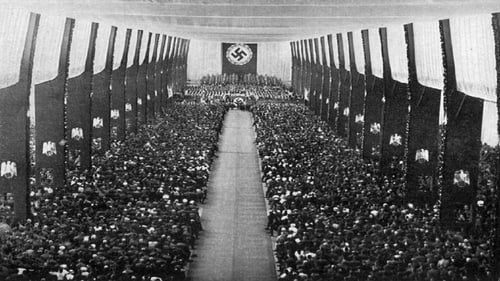
Self (archive footage)

Self (archive footage)
An examination of the paranoia, cold-bloodedness, and sadism of two of the 20th century's most brutal dictators and mass murderers: Adolf Hitler and Joseph Stalin.

Self (archive footage)
In September 2001, respected German historian Lothar Machtan dropped a bombshell on the world of Hitler studies: Hitler was secretly homosexual. His highly acclaimed and explosive book "The Hidden Hitler" ignited a storm of controversy. With information from the bestselling book, award-winning filmmakers Fenton Bailey, Randy Barbato and Gabriel Rotello explore areas of the Führer's private life.

Self (archive footage)
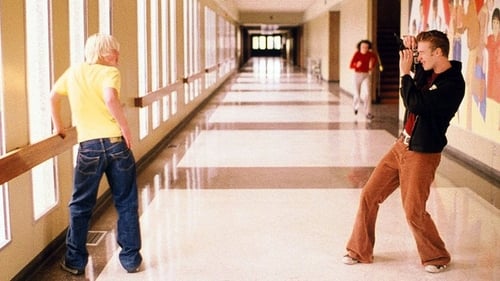
Self (archive footage) (uncredited)
Several ordinary high school students go through their daily routine as two others prepare for something more malevolent.

Self (archive footage)
Since the late 18th century American legal decision that the business corporation organizational model is legally a person, it has become a dominant economic, political and social force around the globe. This film takes an in-depth psychological examination of the organization model through various case studies. What the study illustrates is that in the its behaviour, this type of "person" typically acts like a dangerously destructive psychopath without conscience. Furthermore, we see the profound threat this psychopath has for our world and our future, but also how the people with courage, intelligence and determination can do to stop it.

Himself (archive footage)
アメリカのジャーナリスト、マイケル・ムーアによるドキュメンタリー。アメリカの銃社会を取り上げ、各界の著名人に突撃取材を敢行。そのパフォーマンス的取材力は本作をリアルなエンタテインメントにしている。

Self (archive footage)
A visual montage portrait of our contemporary world dominated by globalized technology and violence.

Self (archive footage)
The 1972 Olympic men's basketball final, in which Team USA was accorded their first ever loss since the sport was adopted in competition, was one of the most controversial events in history the history of the Games.

Self (archive footage)
Home footage plus reenactments of the life & times of Hitler with his mistress, Eva Braun. Their early days of happiness followed by long separations due the war causing much loneliness for Eva. Up until their suicides in the Bunker as the war was drawing to its inevitable conclusion.
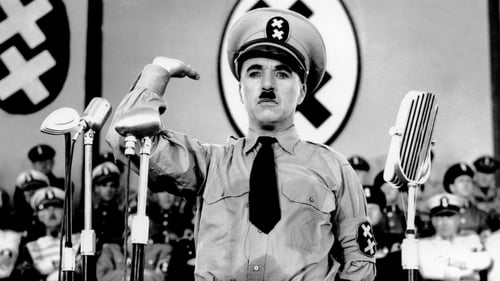
Self (archive footage) (uncredited)
A look at the parallel lives of Charlie Chaplin and Adolf Hitler and how they crossed with the creation of the film “The Great Dictator,” released in 1940.

Self (archive footage)
A documentary about the influences on Tolkien, covering in brief his childhood and how he detested the onslaught of industry through the idyllic countryside, moving on to describe his fighting experience from WWI, and closing with a look at the Finnish inspiration for the scholar's self-invented languages of Elfish. In between are interviews with the cast of the films and some clips, by far the most from "The Fellowship of the Ring", but a few glimpses of Rohan riders (from "The Two Towers") are provided. Also, there are interviews with a range of the filmmakers.

Self (archive footage) (uncredited)
幼なじみの親友、レイフとダニー。米陸軍の航空隊に入った2人は隊でも一、二を争う実力派パイロットに育つ。レイフは美しい看護師イヴリンと出会って恋に落ちるが、欧州の戦場へひとり旅立つ。その一方、ダニーとイヴリンはハワイに転属。レイフが戦死したとの知らせにイヴリンは落ち込むが、ダニーと恋することで立ち直る。だが実はレイフが生きていたと判明し、3人の間には気まずい空気が。そこへ日本軍が真珠湾を奇襲する。

Self (archive footage)
A history of the Nazi movement in the United States. In a feature length survey of Nazism in the USA, we trace the history from the fairly benign organizations that gave structure to newly arrived German immigrants to today's neo-Nazis who breech the borderline of free-speech by using radical action to force their agenda of Aryan Purity.
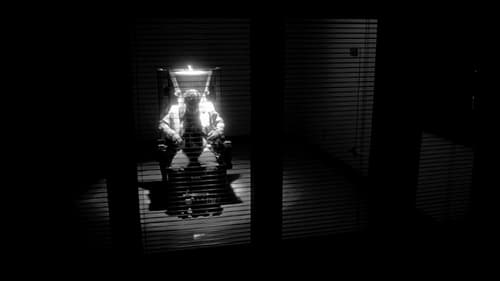
Self (archive footage) (uncredited)
A portrait of the life and career of the infamous American execution device designer Fred A. Leuchter, Jr. Mr. Leuchter was an engineer who became an expert on execution devices and was later hired by holocaust revisionist historian Ernst Zundel to "prove" that there were no gas chambers at Auschwitz. Leuchter published a controversial report confirming Zundel's position, which ultimately ruined his own career. Most of the footage is of Leuchter, working in and around execution facilities or chipping away at the walls of Auschwitz, but Morris also interviews various historians, associates, and neighbors.

Self (Archive)
In June 1941, Hitler broke the golden rule of warfare never to fight on opposite fronts and marched into the Soviet Union. What would drive him to make the most catastrophic mistake of World War II? This acclaimed four-part series investigates what led to the largest military operation in history - and the bloodiest. Assisted by leading historians and granted unique access to Eastern film archives and to both Soviet and German participants, War of the Century is the definitive series on a war that shaped the borders and attitudes of Europe for the second half of the 20th Century.
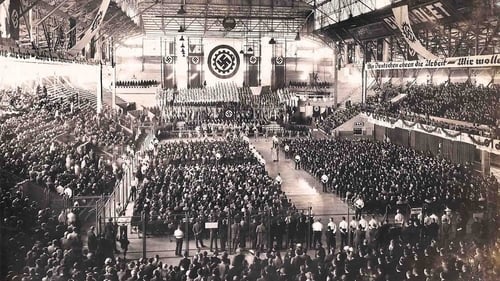
Self (archive footage)
The historical documentary Hitler Youth explores Adolf Hitler's maniacal construction of the titular organization - one comprised of young Aryan men who would rule the world by fear, intimidation and violence. Via a compendium of terrifying archival footage, the program documents the establishment of the Hitler Youth, its escalation from a membership of 13,000 to 10,000,000 within fifteen years, and the death of the organization following Hitler's suicide in 1945.

Self (archive footage)
Human Remains is a haunting documentary which illustrates the banality of evil by creating intimate portraits of five of the 20th century's most reviled dictators. The film unveils the personal lives of Adolf Hitler, Benito Mussolini, Joseph Stalin, Francisco Franco and Mao Tse Tung. We learn the private and mundane details of their everyday lives -- their favorite foods, films, habits and sexual preferences. There is no mention of their public lives or of their place in history. The intentional omission of the horrors for which these men were responsible hovers over the film.
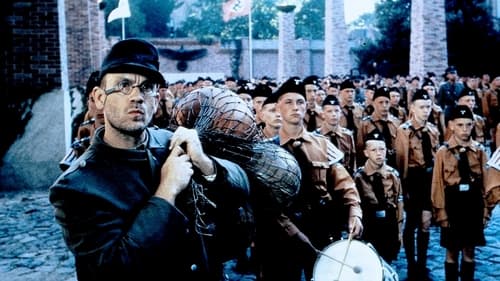
Self (archive footage)
第二次大戦下のパリ。不実の罪の刑罰として前線に送られた、子供と動物をこよなく愛す無垢な男、アベル。すぐ捕虜となるが、その純朴さが上官に気に入られ、幼年学校に雇われる。そして未来のナチス兵士となる少年をスカウトして廻る事に生き甲斐を感じていくのだった。

Self (archive footage)
The very name conjures up images of the good life black tie affairs and high society balls. Yet their long saga proves that money is no guarantee of happiness or stability. John Jacob Astor built an empire by parlaying a job in the fur business into a real estate empire so vast he became the richest man in the world. Follow the fortunes of five generations of Astors in this special BIOGRAPHY. From John's son William, who doubled the family fortune and earned the nickname "the landlord of New York," to the astounding charitable contributions of the Astor Foundation, the incredible story of the famed family comes to life through interviews with family members, archival footage and period accounts. Trace the feud and reconciliation that led to the creation of the Waldorf-Astoria hotel, and find out how the Titanic disaster forever transformed the Astors and their reputation.
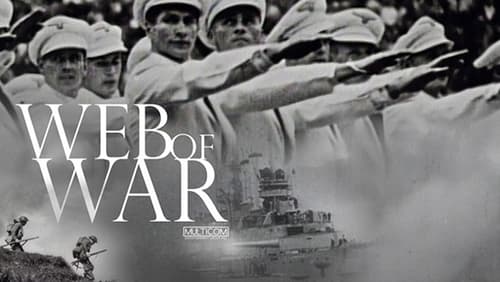
Self (archive footage)
The stories of the battles that brought together a Polish cavalry officer, a Canadian captain, and a polish underground member are told by the very same Canadians who survived them.
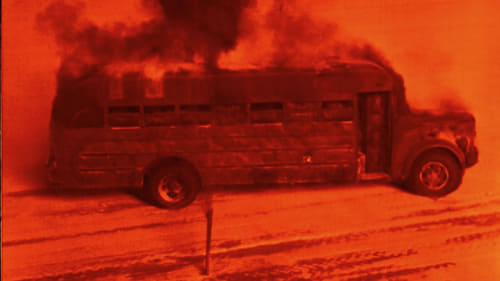
Self (archive footage)
"Trinity and Beyond" is an unsettling yet visually fascinating documentary presenting the history of nuclear weapons development and testing between 1945-1963. Narrated by William Shatner and featuring an original score performed by the Moscow Symphony Orchestra, this award-winning documentary reveals previously unreleased and classified government footage from several countries.

Self (archive footage)
The story of Charles E. Bedaux, Franco-American industrial efficiency expert, adventurer, and Nazi collaborator. In 1934, he bankrolled a 1,200-mile expedition across northern Canada, supported by an outrageously equipped entourage. Documentary about a wealthy adventurer whose Nazi ties eventually led to charges of treason.

Self (archive footage)
This is a rare look at one of the worst horror stories in the long infamous history of warfare. This series features captured German and Russian film footage, much of which has never been seen before. For decades the Cold War prevented us from looking closely at what really happened between the Russians and the Germans on the Eastern Front during World War II. More than a struggle between nations, it pitted maniacal tyrant against maniacal tyrant, evil ideology against evil ideology. The lives of tens of millions of human beings were consumed by its raging hatreds and appalling indignities. One in every ten Russians died. One in every four Poles died. Whole divisions of Italians, Romanians, Hungarians disappeared with barely a trace. An average of 17,800 people died on every single day and this, the war on the Russian German Front, lasted for 1,400 days. This series features captured German and Russian film footage, much of which has never been seen before.

Self (archive footage)
From the beginning, Hergé's work, Tintin's creator, was conditioned by the ideology of his publisher, the weekly child supplement of a Belgian Catholic newspaper. An exciting analysis of the political meaning of the adventures of Tintin.

Self (archive footage)
DEATH SCENES II continues the exploration into the dark recesses of violence and rage that ended in such heinous crimes as the Manson Family's assault on society. You'll see the gruesome aftermath of mob reprisals, public executions and international terrorism. DEATH SCENES II uniquely ushers the brave and curious into a spellbinding trip through the reality that is our world today.

Self (archive footage)
The rise and fall of Nazi Germany's terrifying secret police force from 1933 through 1945.

Self (archive footage)
Directed by Hava Kohav Beller, this stirring documentary chronicles the anti-Nazi resistance movement within Hitler's Germany and the countless unsuccessful attempts to remove the führer from power.

Self (archive footage) (uncredited)
An expose of the beliefs, history, and personalities of American White Supremacist groups, including neo-Nazis, fascists, the Ku Klux Klan, and the Aryan Nation. Footage includes interviews, as well as the supremacist's own promotional material. Subject discussed include the loss of America to the "colored" races, the imminent racial bloodbath, interracial breeding, prejudice, the Holocaust, Jesus, Christianity, Jews, the Bible, and illegal immigrants who enter the country with nuclear bombs strapped to their backs.

Self (archive footage)
Death in all it's faces and stages. From the horrors of Buchenwald to the devastation of Hiroshima. From the political assassinations of the second half of the 20th century to the bloody feeding frenzy of the pythons of Burma. Burned on to the screen like napalm victims of Vietnam. Followed by "Death in Focus" part 2.

Self (archive footage)
The making of 'The World At War'. Each film in the 26 episode series had to be an essay on an aspect of the war, because the length and separate aspects of the war was far too much to cover in detail. Jeremy Isaacs talks about the production process and the aims of the project. The intention of the crew that were involved with the various skills in making 'The World at War' had no desire to use film from British, German, French, Polish, Russian, Japanese, or the Americans because of their specific means of showing the winning side of a specific action. Rather, an effort was made to interview people who were not part of the establishment, but rather the common people or assistants and secretaries of historical persons. Film was researched for those films from cameras where there was no special subject, but those that would allow the viewer to make their own decisions about what they had just seen and heard.

Self (archive footage)
As with so many early films by Sokurov, this film has two dates: the first is the date of its creation (the film was then banned), the second is the date of the final edition and legal public screening. The film consists of German and Soviet archive footage of the World War II — to be exact, from the end of the war. An attempt to make a large–scale documentary on this subject had been undertaken in the Soviet cinema of the 1960s: the film — “Ordinary Fascism” — by the outstanding Soviet film–maker Mikhail Romm had become a classic retrospective investigation of fascism. But Sokurov uses the expressive power of the documentary image in an absolutely different way. He does not amass materials for a large–scale picture of Nazi crimes.

Self (archive footage) (uncredited)
In this unique adult feature, actual archival footage of WWII is interlaced throughout the farcical plot about the sex lives of Hitler and his top confidants.

Self (archive footage)
True Gore combines the usual death footage found in most shockumentaries with video art from Survival Research Laboratories and Monte Cazazza and more
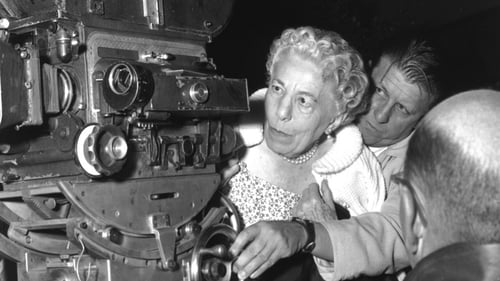
Self (archive footage)
Biography of the legendary filmmaker directed by his son.

Adolf Hitler
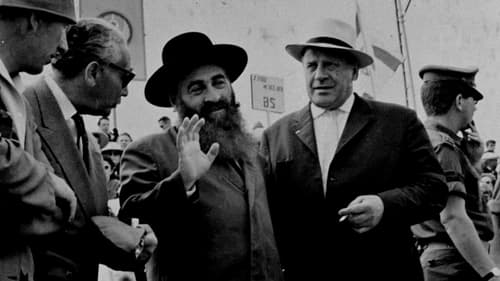
Self - Politician (archive footage)
The true story of German-Czech businessman Oskar Schindler (1908-74) as told by some of the Jews — more than a thousand people — whose lives he saved from extermination during World War II.

Himself (archive footage)
This film tells the story about the concentration camp run by Ustashas and was made on the 40th anniversary of the inmates' escape from the camp.

Self (archive footage)
Human torture. Factories of death. War atrocities. The crimes that haunt the pagse of history are chronicled in the piercing documentary Camps of Death. Following Hitler's murderous career, the film traces his rise to power, his ultimate demise, and the subsequent nuremberg trials that publicized the horrors of Hitler's regime. Concentration camp footage combines with chilling POW interviews to graphically create the nazi nightmare that few could hope to survive. A powerful look at the third reich adn the horrifying fate of its enemies.

Self (archive footage)
Notable for providing a bucolic, personal view of high-ranking Nazis. Eva Braun was the longtime romantic companion to Adolf Hitler, as well as a photographer and amateur filmmaker. Her 8mm Agfacolor-stock home movies, recorded at her leisure, were seized by the US Army in 1945. They were subsequently assembled into 8 reels, from 28 reels of original camera negatives. The US National Archives received this 8-reel film in 1947, and in 2012 began the digital restoration process.

Archive Footage
While a few Hollywood celebrities such as James Stewart and Clark Gable saw combat during World War II, the majority used their talents to rally the American public through bond sales, morale-boosting USO tours, patriotic war dramas and escapist film fare. Comedian David Steinberg plays host for this star-studded, 90-minute documentary, which looks at the way Tinseltown helped the United States' war effort.
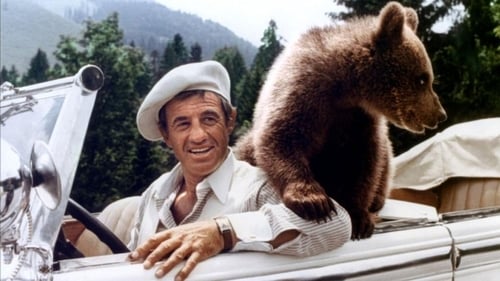
Self (archive footage) (uncredited)
In this action comedy the French boxer Jo Cavalier is charmed on the train to Berlin for the Olympics in Hitler's Germany by the little boy Simon Rosenblum who asks his autograph; when it turns out his adorable young fan is a Jewish orphan in danger of persecution, he risks his one shot at Olympic glory to save Simon and his family, helped only by a German officer-gentleman who became his friend in World War I, by an adventurous escape to Switzerland, Nazi troops on their heals and braving impossible odds in roller coaster-style.

Self (archive footage)
The mass murder of Jewish people by the Nazi regime is chronicled, with a warning that anti-Semitism is on the rise and the events of the Holocaust could happen again. The history of European Jewish culture and events before and during the Holocaust are seen in newsreels, photographs, and animated segments. The words of the victims of the era are read, and footage from the liberation os a concentration camp is shown.

Self (archive footage)
A collection of bloopers and outtakes from an enormous selection of Hollywood classic productions spanning from the 1930s through the 1980s.
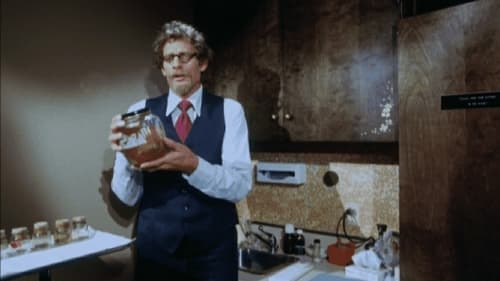
Self (archive footage) (uncredited)
A collection of death scenes, ranging from TV-material to home-made super-8 movies. The common factor is death by some means.

Himself
In 1978, just after Le fond de l'Air Est Rouge, which mercilessly analyzed the previous ten years of the revolutionary left's momentum until its collapse, Chris Marker made this complementary piece entitled Quand le Siècle a Pris Forme (Guerre et Révolution).
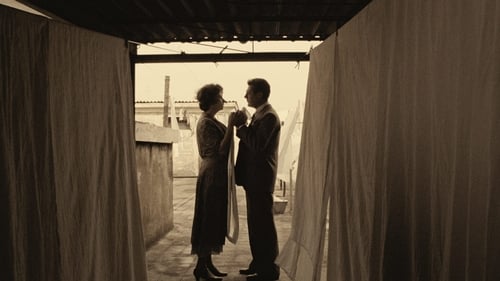
Self (archive footage) (uncredited)
限定された状況をきわめて映画的なドラマに作り替える名人、E・スコラの、鮮やかな手並みが鑑賞できる作品である。ムッソリーニ支配下のローマで、アパートの住人全てがファシスト集会に出向いた後に残された主婦と、官憲に追われそこに忍んでいた反ファシストの男の、一日だけの恋を描く。ほとんど密室劇に近い内容だが、アパートの外観の取り入れ方が、ヒッチコックの「裏窓」を思わせて見事である。
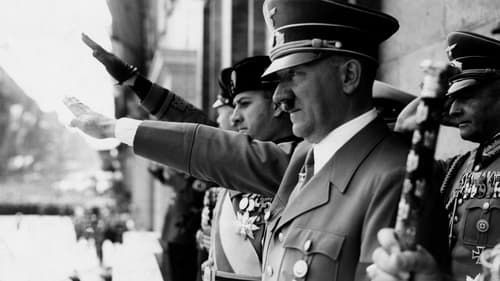
Self (archive footage)
A keen chronicle of the unlikely rise to power of Adolf Hitler (1889-1945) and a dissection of the Third Reich (1933-1945), but also an analysis of mass psychology and how the desperate crowd can be deceived and shepherded to the slaughterhouse.

Self (archive footage) (uncredited)
An illustrious group of German industrialists plot to overthrow Hitler by negotiating a peace treaty with England. Disgraced, but dedicated Nazi officer Colonel Werner von Uhland is assigned by his superiors to ferret out these deceitful dissidents and stop them before it's too late. von Uhland recruits a bunch of beautiful women to seduce these traitors and undermine their conspiracy
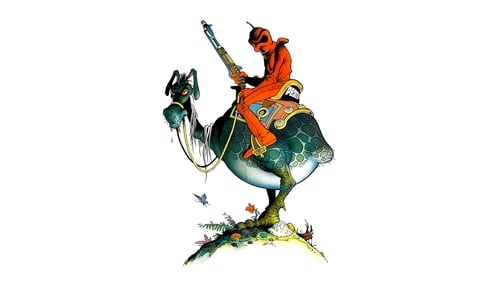
Self (archive footage) (uncredited)
After the death of his mother, the evil mutant wizard Blackwolf discovers some long-lost military technologies. Full of ego and ambition, Blackwolf claims his mother's throne, assembles an army and sets out to brainwash and conquer Earth. Meanwhile, Blackwolf's gentle twin brother, the bearded and sage Avatar, calls upon his own magical abilities to foil Blackwolf's plans for world domination -- even if it means destroying his own flesh and blood.

Self (archive footage)
This film is a kind of anthology about Vienna, from the invention of film to the present day. The aim is to break down the usual clichéd "image of Vienna" such as that found in the traditional "Vienna Film" by juxtaposing documentary footage, newly shot material and subjective sequences created by various artists. Individual, self-contained sections of the film gain new meaning within the context of historical material. Familiar sites appear estranged when edited together with historical scenes. Other scenes appear like a persiflage or satirical. The film does not incorporate any commentary whatsoever. It is a collage of diverse materials aimed at conveying a distanced image of Vienna to the viewer
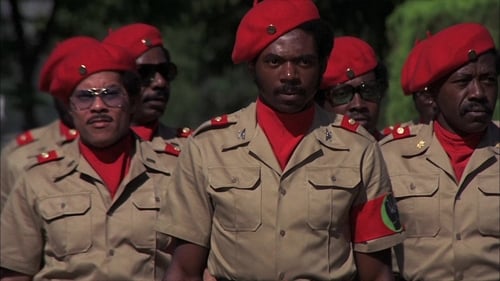
Self (archive footage)
General Ahmed has started an inner-city People's Army to try and relieve the misery of the citizens of Watts. When the locals are put under increasing pressure by Mafia thugs, Ahmed's second-in-command Colonel Kojah asks for permission to start a protection squad to take more direct action. Ahmed fears this protection squad will just turn into a vigilante mob, and his prediction soon proves correct. Will Ahmed be able to wrest control back from the power-mad Kojah, or will he be the mob's next victim?

Self (archive footage)
Swastika is a feature length documentary about the way in which the Nazi regime infiltrated the lives of the German population, during 1933-45.
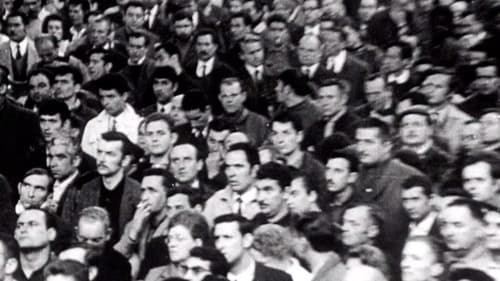
Self (archive footage)
Guy Debord's analysis of a consumer society.
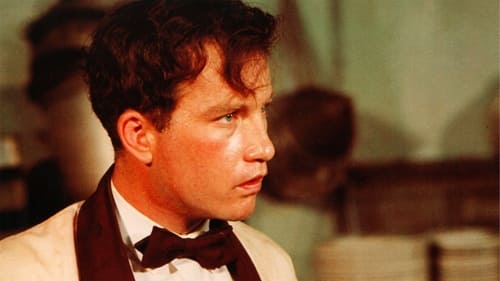
Self (archive footage) (uncredited)
The younger son of a working-class Jewish family in Montreal, Duddy Kravitz yearns to make a name for himself in society. This film chronicles his short and dubious rise to power, as well as his changing relationships with family and friends. Along the way the film explores the themes of anti-semitism and the responsibilities which come with adulthood.

Self (archive footage)
Presents a unique and disturbing look at the rise of the Nazi party. The documentary, directed by Lutz Becker, attempts to remain as objective as possible, serving as a neutral observer of the years 1918 through 1933 in Germany. Via newsreel footage and clips of features from the era, the film offers a kaleidoscopic view of the many elements that fueled the rise of the Socialist Nationalist Party, including post-WWI poverty. Hitler occupies a central place in the documentary.
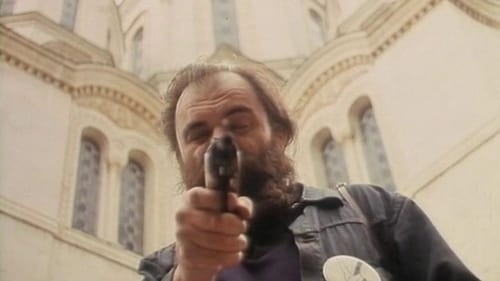
Self (archive footage)
Tom is a young guy from Zagreb, completely without money, trying to make films in Belgrade. He somehow manages to survive with a help of women. He doesn't believe in anybody, respects no one and is in constant conflict with the ruling system and order. After being left by a silly American girl, Tom binds with a woman whose husband is abroad. When she kicks him out, he moves in with her husband's sister, who later kills him in the attack of jealousy. All this is shown in the context of major historical events prior to 1968. with lots of archive footage of world leaders.

Self (archive footage)
Short documentary about 50 years of history of Czechoslovakia, with archive images.
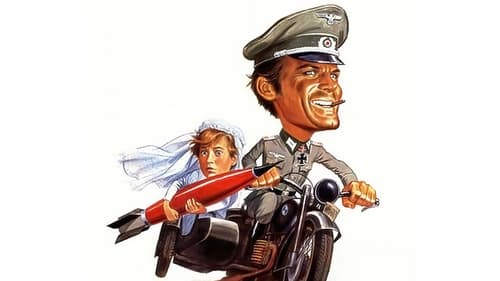
Self (archive footage) (uncredited)
A waitress helps a scientist flee the Nazis.

Self (archive footage)
In the fall of 1967, intermedia artists Ture Sjölander and Lars Weck collaborated with Bengt Modin, video engineer of the Swedish Broadcasting Corporation in Stockholm, to produce an experimental program called Monument. It was broadcast in January, 1968, and subsequently has been seen throughout Europe, Asia, and the United States. Apart from the technical aspect of the project, their intention was to develop a widened consciousness of the communi - cative process inherent in visual images. They selected as source material the "monuments" of world culture— images of famous persons and paintings.
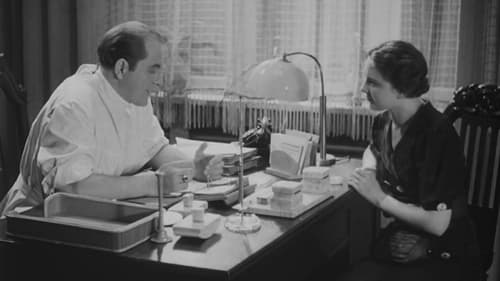
Self (archive footage)
Romm's "Ordinary Fascism" pulls out all the stops in its selection of documentary material to draw the viewer not only into absolute horror about fascism and nazism in the 1920s–1940s Europe, but also to a firmest of convictions that nothing of the sort should be allowed to happen again anywhere in the world.

Self (archive footage) (uncredited)
Documents the major trial of the Nazi war criminals and the violent acts that they were accused of.

Self (archive footage) (uncredited)
Documentary compiled from archives and accompanied by a poet's commentary, shows the sweep of modern Italian history from 1911 to 1961, centering on the conditions leading to Fascism and the post-WWII reaction to the Fascist experience.

Self (archive footage)
The rise and fall of Nazi Germany in part through the use of classical allegory.

Self (archive footage)
Documentary on the Greek history of the first half of the 20th century, from the Balkan wars until December events, with a special emphasis on the Asia Minor Catastrophe and its aftermath, through filmed documents by Joseph Hep, George Prokopiou, Achilleas Mandras, Philopimenas Finos, Gabriel Loggos and Kyriakos Kourbetis.

Self (archive Footage)
Carefully chronicling in great detail the early years of Hitler's political life until his fall as the leader of Germany, this archive-footage documentary offers a sharply critical insight into the stealthy rise of the Nazi party and how it's racist vision of the world slowly took hold in a disillusioned Germany.

Self (archive footage)
A documentary about the capacity of organized destruction of the Nazi war machine

Self (archive footage)
"Mein Kampf" presents the raising and fall of the Third Reich, showing mainly the destruction of Poland and the life Hitler, which is told since he was a mediocre student and frustrated aspirant of artist living in slums in Austria and Germany, until his suicide in 1945 after being the responsible for the death of million of people, and the destruction of Europe. All the footage is real and belonged to a secret file of Goebbels, inclusive with many very strong scenes filmed by Goebbels himself.
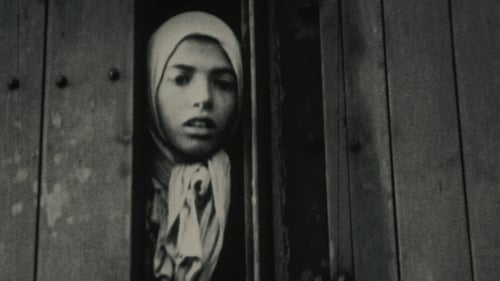
Self (archive footage) (uncredited)
Filmmaker Alain Resnais documents the atrocities behind the walls of Hitler's concentration camps.

Self (archive footage)
The film begins with the First World War and ends in 1945. Without exception, recordings from this period were used, which came from weekly news reports from different countries. Previously unpublished scenes about the private life of Adolf Hitler and Eva Braun were also shown for the first time. The film was originally built into a frame story. The Off Commentary begins with the words: "This film [...] is a document of delusion that on the way to power tore an entire people and a whole world into disaster. This film portrays the suffering of a generation that only ended five to twelve. " The film premiered in Cologne on November 20, 1953, but was immediately banned by Federal Interior Minister Gerhard Schröder in agreement with the interior ministers of the federal states of the Federal Republic of Germany.

Self (archive footage)
Documentary of war atrocities with newsreel footage of concentration camps.

Self (archive footage)
Compilation film about a very German first half of the 20th century.
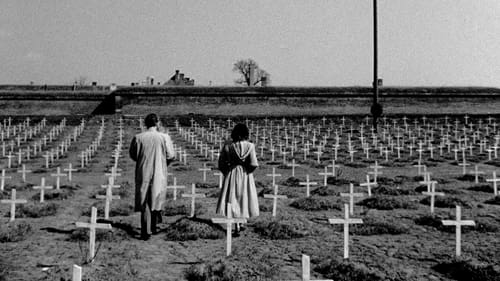
Self - Politician (archive footage)
Prague, during World War II. Hana Kaufmann, a Jewish ophthalmologist, marries Dr. Antonín Bureš, a Christian man. When her family is sent to the Theresienstadt concentration camp, their romance turns into a struggle for survival.
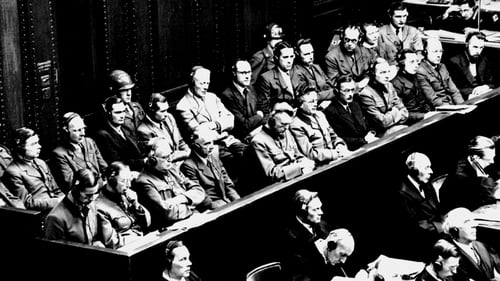
Self (archive footage)
How, in November 1945, after the end of the World War II and the fall of the Third Reich, the international prosecutors participating in the first Nuremberg trial —formally, the International Military Tribunal— built their case against the top Nazi war criminals using the films and records produced by the own regime, obsessed with documenting everything in its long path of infamy and crime.

Self (archive footage)
An account of Adolf Hitler's rise and fall, his relationship with Eva Braun and their days of leisure at the Berghof, their Bavarian residence.

Self (archive footage)
William L. Shirer, the author of The Rise and Fall of the 3rd Reich, talks about the youth who were under Hitler. He speaks on the influence, hate, death, war and conquest has on the youth. How these concepts are built into them the moment they are born.

Self (archive footage)
Nazi propaganda film about the "Theresienstadt ghetto". The film was supposed to show the world that Jews didn't suffer in concentration camps. Upon completion, most Jews shown in the film (including director Kurt Gerron) were brought to Auschwitz, where they were killed.

Self (archive footage)
Know Your Ally: Britain was a 45-minute propaganda film made in 1944. It was narrated by Walter Huston and produced by the United States War Department and Signal Corp to solidify Anglo-American solidarity within the ranks as well as counter Nazi propaganda aimed at weakening the Alliance.
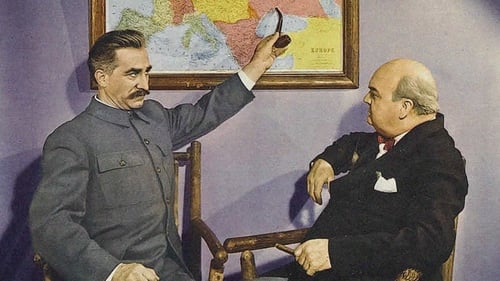
Self (archive footage) (uncredited)
Ambassador Joseph Davies is sent by FDR to Russia to learn about the Soviet system and returns to America as an advocate of Stalinism.

Self (archive footage)
A featureless land fit only for war, as the narrator, J. L. Hodson stated in the early scenes: "If war was to be fought then let it begin here". In endless miles of rock-strewn scrub desert, where civilians hardly existed. Desert Victory tells the story of the Allied campaign to drive Germany and Italy from North Africa is analysed, with the major portion of the film examining the battles at El Alamein, including some re-enactment. Won "Best Documentary Feature" at the 16th Academy Awards in 1944.

Self (archive footage) (uncredited)
A propaganda film during World War II about a boy who grows up to become a Nazi soldier.

Self (archive footage) (uncredited)
"Docudrama" about the bombing of Pearl Harbor on December 7th, 1941 and its results, the recovering of the ships, the improving of defense in Hawaii and the US efforts to beat back the Japanese reinforcements.

Self (archive footage) (uncredited)
Frenchwoman Michele de la Becque, an opponent of the Nazis in German-occupied Paris, hides a downed American flyer, Pat Talbot, and attempts to get him safely out of the country.
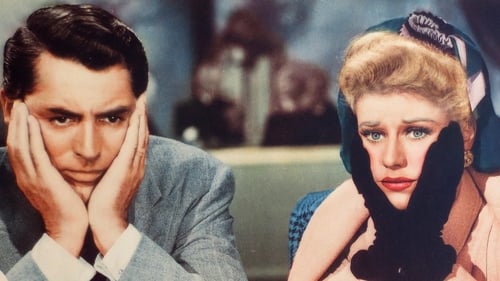
Himself (archive footage) (uncredited)
A radio correspondent tries to rescue a burlesque queen from her marriage to a Nazi official.

Self (archive footage)
Documentary examining the events which led up to the Second World War.

Self (archive footage) (uncredited)
Winning Your Wings is a 1942 short American World War II recruitment film produced by Warner Bros. Studios for the US Army Air Forces, starring Jimmy Stewart. It was aimed at young men who were thinking about joining the Air Force.
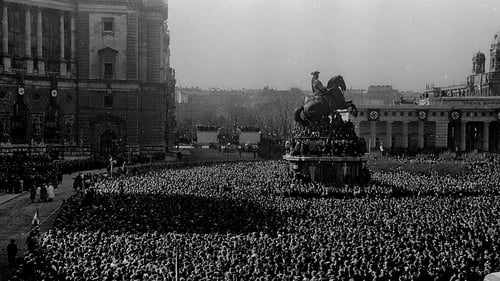
Book
Prelude to War was the first film of Frank Capra's Why We Fight propaganda film series, commissioned by the Pentagon and George C. Marshall. It was made to convince American troops of the necessity of combating the Axis Powers during World War II. This film examines the differences between democratic and fascist states.

Self (archive footage)
A 1941 Ministry of Information propaganda film set to the tune of The Lambeth Walk, a popular song from the musical Me and My Girl.

Self (uncredited)
Chronicles combat action of Hitler's elite bodyguard regiment from 1940 to 1941. From Rotterdam to Greece, German frontline cameramen captured footage of early victorious campaigns. Scenes of camp life and ceremonies convey an impression of the comradeship, pride, and elan of this mighty military formation.

Self (archive footage)
This film illustrates the difference between World War II and the war of 1914, emphasizing the importance of mechanization, and contrasting the mobile tactics with the immobility of trench warfare. The scientific approach, both to problems of military strategy and to new weapons, is all-important. The film shows some of the work done by Canadian scientists to make these weapons as effective as possible.

Self (archive footage)
Hitler's doctor is gradually realising that the Nazi regime isn't as good as it pretends to be when his friends start to "disappear" into the camps. His wife is courted by the party and accepts a political post in Berlin. Meanwhile Dr Karl decides to try to do something to counteract the Nazi propaganda and with the help of an engineer and a few friends he sets up the Freedom Radio to counteract the Nazi propaganda.
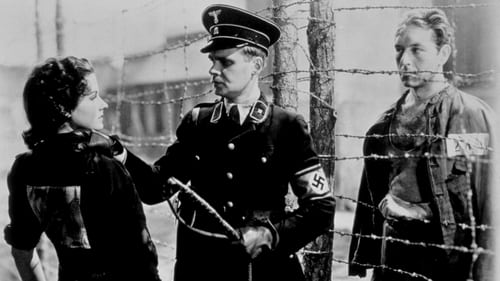
Himself (archive footage)
Czechoslovakia, March 1939, on the eve of World War II. As the German invaders occupy Prague, inventor Axel Bomasch manages to flee and reach England; but those who need to put his knowledge at the service of the Nazi war machine, in order to carry out their evil plans of destruction, will stop at nothing to capture him.

Self
During the colorful ceremonies of the Nuremberg rallies, Hitler Youth parade before their Fuehrer and are addressed by Nazi youth leader Baldur von Schirach, Rudolf Hess, and Hitler himself.
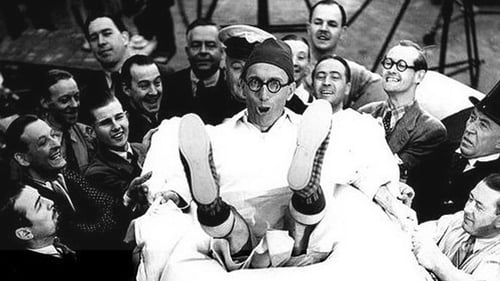
Self (archive footage) (uncredited)
A gang of spies held up in a haunted castle gives this team of celebrated British wireless comedians plenty of scope for laughs.

Self
The first blitzkrieg, Hitler's invasion of Poland, is traced in this original Nazi propaganda film from 1940.
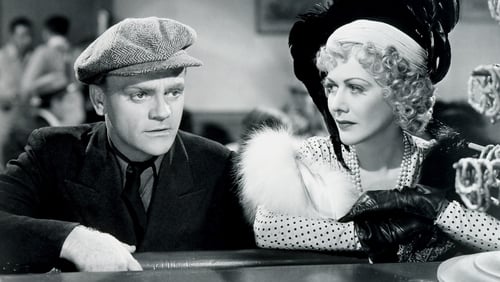
Self (archive footage) (uncredited)
After World War I, Armistice Lloyd Hart goes back to practice law, former saloon keeper George Hally turns to bootlegging, and out-of-work Eddie Bartlett becomes a cab driver. Eddie builds a fleet of cabs through delivery of bootleg liquor and hires Lloyd as his lawyer. George becomes Eddie's partner and the rackets flourish until love and rivalry interfere.
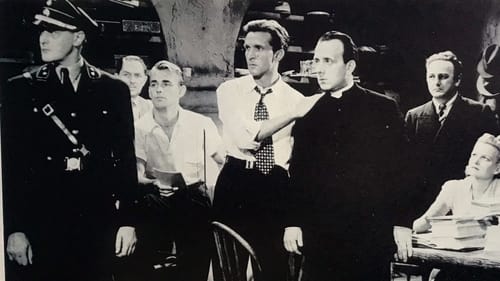
Self (archive footage) (uncredited)
Hans Memling, a young intellectual, patriotic German, is secretly opposed to the Nazi regime. With the aid of Gustav Schultz, Father Pommer, Anna Wahl and others, he is gleaning accurate information from foreign radio broadcasts and distributing it through Germany with an underground-press operation. He convinces his brother-in-law Karl Bach, the brother of his wife Elsa, that Hitler is leading Germany toward a second world war. Karl, in love with Anna, joins the movement, determined to restore German culture and save the people from the brutality of the Storm Troopers and the Gestapo. The group has an inside link through Albert Stalhelm, a Storm Trooper and one of Hitler's Elite Guards. Albert is sickened by the brutalities he sees and wants to resign and flee Germany, but Hans persuades him to remain until they can find a replacement. He agrees, but warns the group that he is forced to join in the Nazi orgies and liquor loosens his tongue...
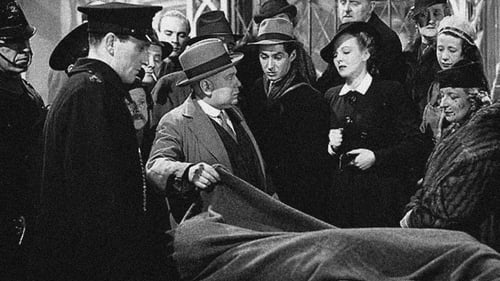
Self (archive footage) (uncredited)
The Four Men of the title are British WWI veterans who decide to work secretly against enemies of the country. They aren't above a bit of murder or sabotage to serve their ends, but they consider themselves to be true patriots.

Self (archive footage) (uncredited)
FBI agent Ed Renard investigates the pre-War espionage activities of the German-American Bund.

Self
Documentary short by the German Labour Front (Deutsche Arbeitsfront) about the construction and launching of the cruise ship "Wilhelm Gustloff".

Self (archive footage)
A documentary about the threat of war breaking out in Europe, focusing on Hitler, Stalin and Mussolini.
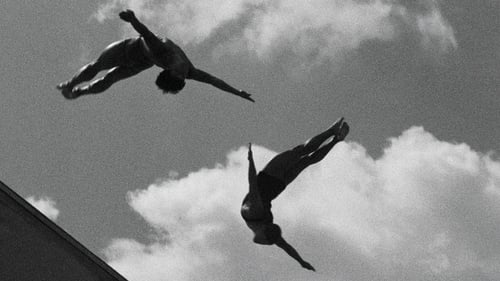
Self
The Second part of Olympia, a documentary about the 1936 Olympic games in Berlin by German Director Leni Riefenstahl. The film played in theaters in 1938 and again in 1952 after the fall of the Nazi Regime.

Self (uncredited)
The First part of Olympia, a documentary about the 1936 Olympic games in Berlin by German Director Leni Riefenstahl. The film played in theaters in 1938 and again in 1952 after the fall of the Nazi Regime.

Self (archive footage)
Nazi propaganda film contrasting Germany in the days of the Weimar Republic with contemporary Germany under Adolf Hitler.

Self
Nazi propaganda film contrasting Germany in the days before Adolf Hitler became Chancellor with the Germany of "today" and how much better it is.

Self (archive footage)
Short documentary film in the newsreel series 'The March of Time'.

Self
The center piece of the this propaganda film is Mussolini's visit to the the German Olympic Stadium in 1937, where he was greeted that 1 million people jammed into the stadium to hear him speak. Also features speeches in nearby Mayfield, various meetings that Mussolini had with prominent members of the Nazi party in Munich, Mussolini's watching German Army field exercises, and, with Hermann Göring, reviewing military parades.

Self
Said to pick up where "Triumph of the Will" left off, this film showcases highlights of the Nazi Party rallies in Nüremberg in 1936 and 1937. The main focus of the film begins with extended footage of the Gothic splendor of Nüremberg from the air, Hitler's arrival at the airbase, his motorcade into the city, and the ensuing ceremonies. Other, much more propagandistic elements, are edited in; they include: past Nazi party marches and rallies, parachute drops, Wehrmacht exercises in the Zeppelin fields, random military formation night rallies and random shots of massed crowds, fireworks, torch lit marches, even live explosions.
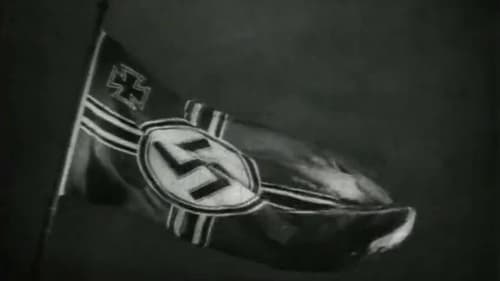
Self
Filming of the performance show the Deutsche Wehrmacht (German Army) made during the Reichsparteitag of the NSDAP in Nurnberg 1935. Showing the readiness and the will of the newly build army. The third documentary directed by Leni Riefenstahl.
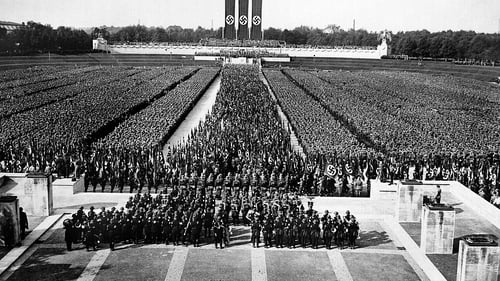
Self
Filmmaker Leni Riefenstahl's controversial masterwork is an artful work of propaganda showcasing German chancellor and Nazi Party leader Adolf Hitler at the 1934 Nuremberg Rally. Edited from over 60 hours' worth of raw footage shot over the course of the rally's four days, the film is visually remarkable in the way it captures the event's enormous scale.

Self
A documentary meant to show Americans what had been going on in Germany since Hitler's rise, centered on a fact finding trip by Cornelius Vanderbilt, with newsreel footage of book burnings and such.
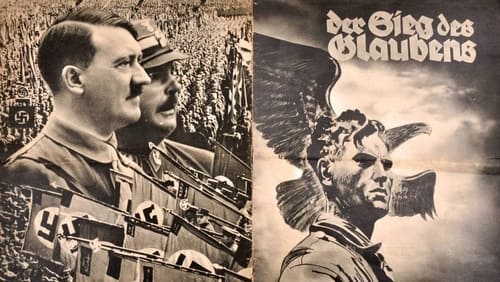
Self
The earliest Nazi propaganda film by Leni Riefenstahl, best known for her follow-up Triumph of the Will. Victory follows the Fifth Nazi Party Rally (Nuremberg, 30 August–3 September 1933) and shows the then close relationship between Adolf Hitler and Ernest Rõhm. Ten months later, on 1 July 1934, during the Night of the Long Knives, Hitler had Rõhm shot, which not only had the Sturmabteilung threat eliminated but also concreted Hitler's supremacy. Because Hitler sought to erase Rõhm from German history, he ordered all known copies of the film destroyed but one resurfaced in 1980s East Germany.

Self
Hitler's first speech as the elected Chancellor of Germany. Subject is a call for German's to hand the Nazi party total power in Germany.

Self
A propaganda film of the Nazi Party from the year of the “Machtergreifung” in 1933. The film is a contemporary interesting document that illustrates the self-perception of the party at the beginning of their importance in terms of power politics.

Self (archive footage)
This Nazi propaganda documentary traces the rise to power of the Nazi party in Germany.

Archival Footage
On February 21, 1945, the Royal Canadian Air Force Halifax bomber NP711 with a crew of seven men took off from the Linton-on-Ouse air base in England for a bombing raid over Worms, Germany. The bomber never made it to its target. The Halifax was struck by anti-aircraft fire and crashed into a mountainside near Leistadt, Germany. All crew members were killed. The crash was so horrific that the wreckage was strewn over 1,000 meters. Seventy-seven years later the wreckage was recovered and the site was deemed a gravesite for the perished crew. This documentary film examines the last days of the seven-member crew and the recovery of the wreckage of Halifax NP711.

Himself
God is doing the irreparable which anger people and pushes them to want to cancel him. But can we cancel God?

Self - Politician (archive footage)
The Spanish journalist Manuel Chaves Nogales (1897-1944) was wherever the news was: in the fratricidal Spain of 1936, in Bolshevik Russia, in fascist Italy, in Nazi Germany, in a threatened Paris or in the bombed London of World War II; because his job was to walk and tell stories and fight against totalitarianisms, in a time when it was necessary to take sides in order not to be left alone. But he, with integrity, never did.

Self (archive footage) (uncredited)
the italian social republic was born in september 1943 after the armistice with the allies and the liberation of mussolini, as an attempt to rebuild an italian state that would continue the work of fascism. the government of the new republic is based in salo ', on the shores of lake garda, with a political center in verona, where the republican fascist party is rebuilt. from then until 1945 Italy lived nineteen dramatic months, characterized by deaths and destruction. in the vain attempt to regain the consent of the masses, the republic of salo 'became an instrument of repression in the hands of the Germans and collapsed, in April 1945, in the face of the advance of the allied armies. this documentary reconstructs the history of those 600 days with largely unpublished material.























































































































